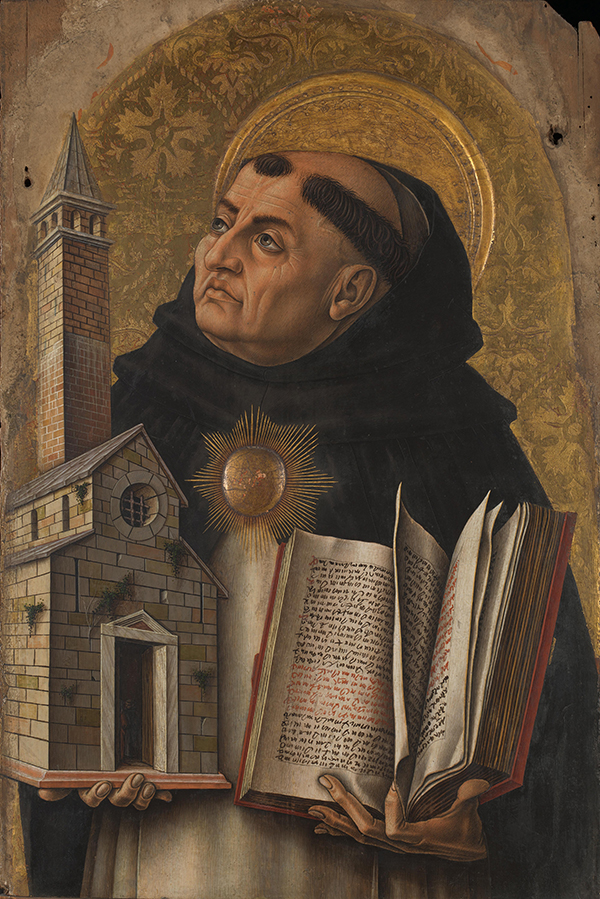
January Saint: St. Thomas Aquinas
For a “dumb ox” – the totally erroneous sobriquet bestowed on him by some of his classmates in Paris – St. Thomas Aquinas rose to become one of the greatest and most influential intellectuals in the history of the Catholic Church.
Born in the year 1225 to Count Landuff of Aquino and his wife, Theodora, Thomas was sent to the Benedictine Monastery at Monte Cassino at the age of five to begin his studies. Both his parents hoped that, in time, he would join the Benedictine Order; however, in 1243, after studying for a year at the University of Naples, Thomas was introduced to the relatively new Dominican Order and decided to join them instead.
This did not go over at all well with his family. In an attempt to change his mind, his mother had Thomas kidnapped by his brothers and returned to Aquino, where he was under virtual house arrest for a year. When it became apparent that nothing would change his mind, Theodora arranged for her son to “escape” from the family home, rather than lose face by appearing to accept his decision.
In 1245, Thomas began his studies in Paris as a Dominican; it was there that his classmates mistook his quiet nature as evidence of a slow mind. However, Thomas’ professor, the Dominican scholar Albertus Magnus, saw the true potential of his student and proclaimed, “You call him the dumb ox, but in his teaching, he will one day produce such a bellowing that it will be heard throughout the world.”
Although Thomas taught at the university level, it was his writing for which he was best known. In 1257, both he and St. Bonaventure received their doctorates in theology after which Thomas began a prolific period in which he produced a number of works for then Pope Urban IV.
In 1265, Thomas began his greatest work, the Summa Theologiae. While Thomas’ writing was characterized by a faithful adherence to revealed truth, he coupled this with the acknowledgement that intellectual reason was also a gift from God and something to be cherished. He defended the proper use of Aristotelian philosophy and wrote against those who were “anti-Aristotelian.” In addition to the Summa, Thomas continued to write several more books dealing with various aspects of theology.
It was while attending Mass on Dec. 6, 1273, that Thomas had a mystical experience. Though he never told anyone precisely what the experience was, it caused him to stop writing and teaching altogether. When asked why he had so abruptly ceased his work, he replied, “I cannot go on. … All that I have written seems to me like so much straw compared to what I have seen and what has been revealed to me.” He died three months later on March 7, 1274.
Thomas Aquinas was canonized in 1323 by Pope John XXII and declared a Doctor of the Church in 1567. The patron of Catholic colleges and universities as well as philosophers and students, his feast day is Jan. 28.
Sources for this article include:
catholic.org/saints/saint.php?saint_id=2530
franciscanmedia.org/saint-of-the-day/saint-thomas-aquinas
“Saint Thomas Aquinas.” CatholicSaints.Info. Feb. 20, 2022.
Schreck, Alan. “Catholic Church History from A to Z.” Michigan: Servant Publications.

